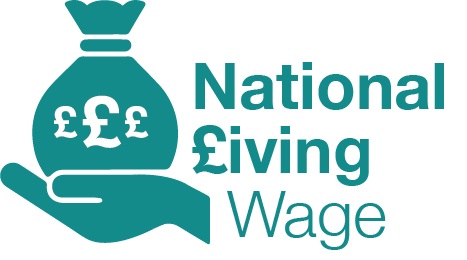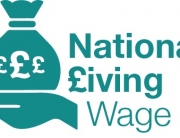It is now over a year since the UK government introduced the National Living Wage. Despite fears that the new rules would place unmanageable cost pressures on SMEs, most businesses seem to be coping well under the new regime, which is testament to the resilience of British entrepreneurship. Additional costs will always cause problems for smaller businesses, but there are also obvious benefits to paying the National Living Wage, not least in terms of your reputation as an employer. Here are some key points to consider.
A Quick Recap
It is illegal for any employer to pay below the National Living Wage. UK businesses are now required to pay workers aged 25 and over who are not in their first year of an apprenticeship a minimum of £7.50 per hour. For employees aged under 25 and apprentices the rules are slightly different. Workers in these categories are legally entitled to the National Minimum Wage, which has risen to £7.05 per hour for 21 to 24 year olds, £5.60 for 18-20 year olds, £4.05 for under 18s and £3.50 for apprentices.
Cost vs. Reputation
The recent round of naming and shaming businesses that don’t pay the National Living Wage should present serious food for thought for every employer. Paying the National Living Wage might mean having to divert resources from other parts of your business, and on top of the existing costs businesses face – National Insurance contributions, holiday cover, maternity pay and so on – this could cause cash flow problems, especially for firms operating on tight margins. However, the reputational damage your business could sustain if you’re outed as a non-payer would be immeasurably worse, and we are now hearing reports of businesses being forced to compensate their workers for underpayment. It is the sort of damage that ends smaller businesses, so we strongly advise that you think twice about any cost cutting in this area.
Paying the National Living Wage will also help with recruitment and staff retention. Well-paid workers are happy workers, and you will hold onto staff longer if they have no concerns about their pay.
A Helping Hand
Having saddled businesses with additional costs, the government needs to step up and find ways to help employers manage under the new system. In a previous post we called upon government to reform the failing business rates system, and this to our minds remains the best way to help businesses that are struggling to pay.
Be Prepared
The National Living Wage is expected to rise to £9 per hour by 2020. Many businesses have already raised concerns about the planned hike, but there is nothing you as an employer can do to prevent it. The best course of action is to plan ahead. Businesses have over two years to get their houses in order before the increase hits, and acting now will prevent misery later.
You can also prepare yourself by taking expert advice. If you have any queries about the National Living Wage and your legal obligations as an employer, call Frontline today for a confidential consultation.






Get Social
Facebook
Twitter
LinkedIn
Youtube